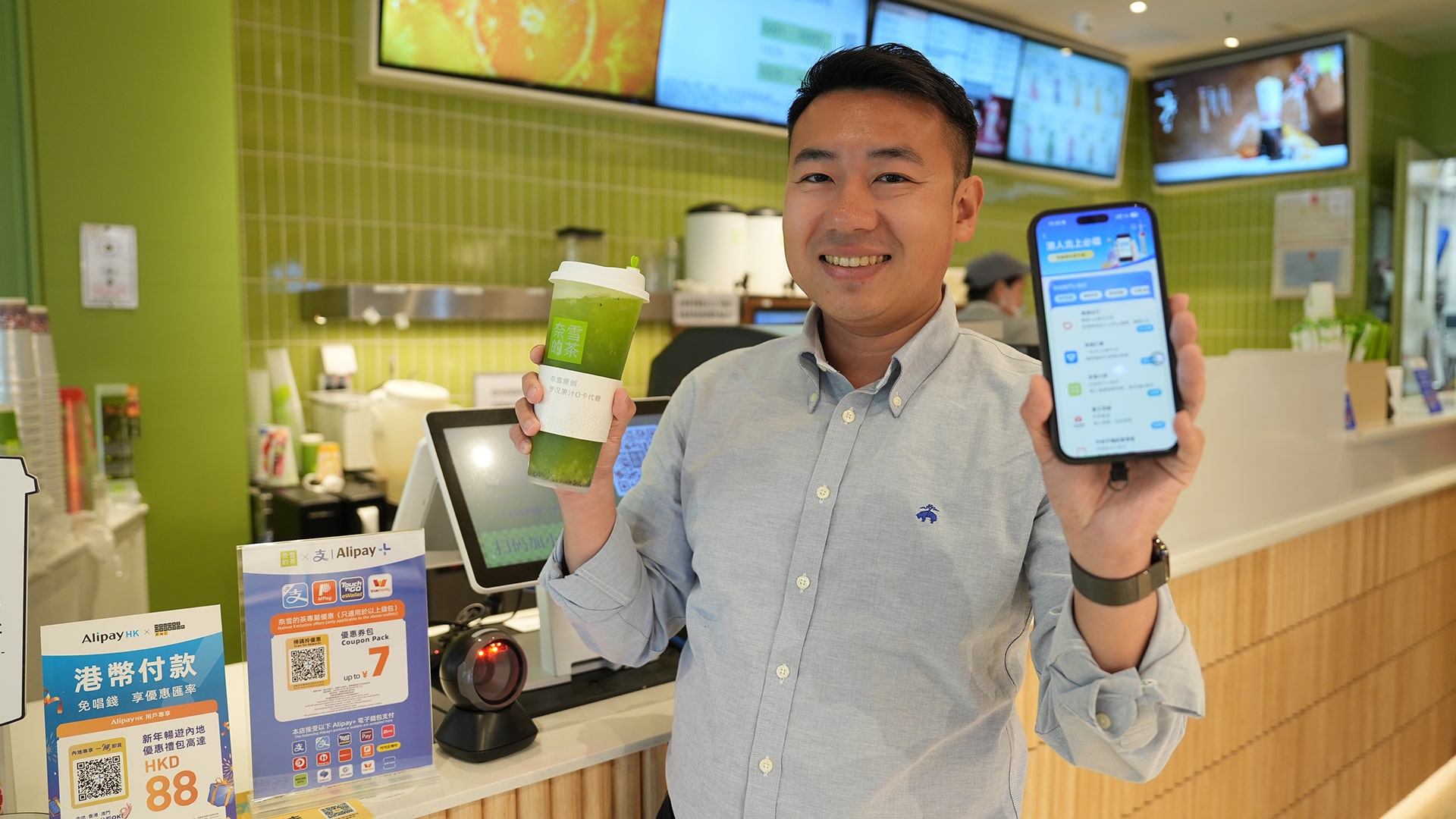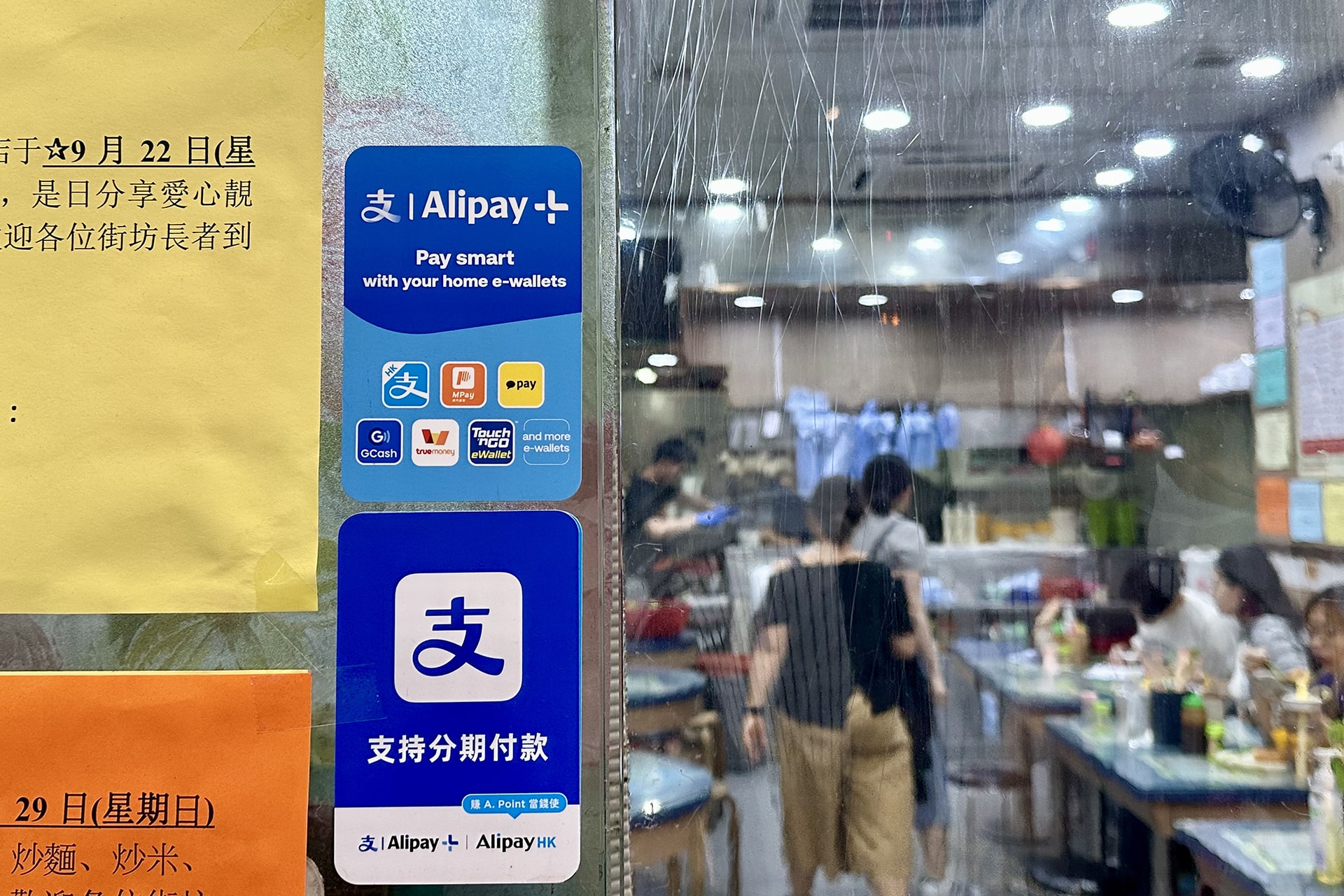As morning crowds shuffle through Hong Kong’s metro stations, coffees in hand, phones flash to life and tap against turnstiles in a quick, practiced motion. A few swipes later, breakfast may be paid for at a street stall or cafe, and by midday, plans for dinner or a movie could be booked on the same device—all without ever reaching for a wallet.
Increasingly, this rhythm of daily life runs through a single app: AlipayHK.
Once a simple way to pay for groceries or a train ride, AlipayHK has steadily expanded into something much broader: a platform woven into many corners of city life, offering services that span transport, dining, entertainment, and financial planning. Artificial intelligence now threads through the experience too, steering everything from personalized offers to fraud detection, often without users noticing.
Venetia Lee, CEO of AlipayHK and general manager for Greater China at Ant International, sees this evolution as a natural response to how Hong Kong moves: fast, mobile, and increasingly cross-border. Under her leadership, AlipayHK has embedded itself not only into local merchants and public transport systems but also into the daily patterns of travelers between Hong Kong and the mainland.
Partnerships with banks, insurance firms, and small businesses have deepened the platform’s utility, creating a marketplace where rewards programs, low-threshold investment products, and cross-border travel options sit alongside payment features. A focus on AI integration, Lee says, will drive even greater personalization and security.
Building a lifestyle platform in a city known for its attachment to cash—and its fierce standards for privacy—is no small task. Yet AlipayHK’s growing traction hints at a shift. There is a growing comfort with the idea that one app, if designed with the right balance of convenience and trust, can quietly thread together the many strands of urban life.
To find out more, KrASIA recently spoke with Lee about AlipayHK’s evolution, how it’s shaping daily life in Hong Kong, and where the platform is headed next.
The following transcript has been edited and consolidated for brevity and clarity.
KrASIA: AlipayHK today isn’t just a wallet. How do you define what it is?
Venetia Lee (VL): AlipayHK started out in payments and e-wallet functions, but today it is evolving into a one-stop lifestyle platform. Payments are the foundation of what we do, but now the app offers lifestyle and financial services that span many aspects of daily life, including transport, dining, entertainment and wealth management.
KrASIA: There’s a wide variety of mobile wallet options embedded in Hong Kong. What gives AlipayHK a defensible moat?
VL: Firstly, we are honored to serve over 4.2 million active AlipayHK users. That means more than one in two people in Hong Kong use AlipayHK. We also cover over 150,000 online and offline merchant outlets across the city.
AlipayHK enables users to make payments in many scenarios—whether it’s offline payments at shops and supermarkets, e-commerce purchases on platforms like Taobao, utility bill payments, cross-border remittances, or travel and spending on the Chinese mainland.

What also sets us apart from other mobile wallets in Hong Kong is our “A. Point” rewards program, which allows users to accumulate points that can be used to offset spending, or exchanged for coupons, thus reducing users’ spending costs while fostering user loyalty.
Finally, through Ant Group’s technology, including big data and AI, our algorithms are continuously optimized to provide tailored promotions and services for users, ensuring each person receives the most relevant offers for their needs.
Furthermore, the experience remains coherent even when users travel outside of Hong Kong. For example, when traveling to the Chinese mainland, users can leverage various features and mini apps within AlipayHK to book ride-hailing services, make restaurant reservations, buy movie tickets, and take public transport—just as they would in Hong Kong.
So far, the trends we have seen in cross-border payments are encouraging. On the Chinese mainland, AlipayHK can be used to pay at over 80 million merchants, and transaction amounts have doubled year-on-year in 2024.

KrASIA: What challenges and opportunities has AlipayHK encountered while working with traditional financial institutions?
VL: There are far more opportunities than challenges when working with financial institutions. Banks are embracing digitalization and welcome innovation, and we have seen a lot of fintech innovation in Hong Kong over the years.
For AlipayHK, we have partnered with many banks in the city. Take Standard Chartered, for example—we collaborated to offer the “A. Point Card,” which is a credit card that gives users rewards points for both local and cross-border spending, as well as no handling fees on transfers done via AlipayHK.
Additionally, we have teamed up with various insurance companies such as Prudential and YAS to offer health protection and other insurance products to AlipayHK’s millions of users.
For wealth management, through collaborating with Ant Bank (Hong Kong), we have created a marketplace within the Ant Bank mini app on AlipayHK where users can access low-threshold fund investments starting from as little as HKD 1 (USD 0.13).
Ultimately, we strive to provide a platform that can help financial institutions digitalize, while providing users access to wealth management services from our various banking and insurance partners via AlipayHK.
KrASIA: AlipayHK covers nearly the full range of transport modes in Hong Kong. What were the critical unlocks to achieving this coverage?
VL: To date, AlipayHK can be used to pay for over 90% of public transport services in Hong Kong. A key factor in achieving this level of coverage and cooperation with transportation providers is EasyGo, our QR code transportation solution that enables fare payments to be processed in less than a second.
What’s great about EasyGo is that even if the user’s phone or the terminal—say, on a bus—are offline or have a weak network connection, the transaction will still be recorded and processed when the system is back online. This ensures that transportation providers do not have to worry about missed payments, positioning AlipayHK as a reliable platform that providers are happy to integrate into their systems.
Due to the stability of our EasyGo technology and our extensive transport coverage, AlipayHK has become the first e-wallet in Hong Kong to be incorporated into the government’s Public Transport Fare Subsidy Scheme (PTFSS) since the beginning of this year.
We are also the first and only e-wallet to partner with Uber in Hong Kong, allowing rides to be paid via AlipayHK.
Beyond local transport, users can also easily access cross-border travel options, such as high-speed train tickets and ride-hailing services on the Chinese mainland via AlipayHK.
KrASIA: AlipayHK launched an AI smart assistant this year. What prompted its introduction and how will it change the user experience?
VL: As a platform that aims to connect technology with daily life, we want to enhance users’ experience by integrating AI into AlipayHK. With the AI assistant, users can ask for advice on how to use Alipay services or receive dining and travel recommendations, then book those services within AlipayHK’s ecosystem.
AI also drives improvements in efficiency, safety, and user experience. Since last year, we have incorporated AI for account security measures like automated fraud detection and for handling customer enquiries.
In a way, we aspire to become Hong Kong’s superapp, where users can access a wide variety of services they need daily via AlipayHK. Eventually, we hope to become an AI-driven superapp that’s tailored for Hong Kong users and the wider Greater Bay Area, delivering more AI-powered fintech solutions along the way.
Within this year, we will further integrate AI into various fields such as financial planning and travel services, allowing people in Hong Kong to personally experience the advent of the “’AI-as-a-service” era.
KrASIA: Hong Kong consumers are known to be both tech-savvy and privacy-conscious. How do you design for that balance?
VL: AlipayHK was among the first batch of e-wallets to receive a stored value facilities (SVF) license from the Hong Kong Monetary Authority (HKMA). Like banks and other e-wallets, we are regulated by the HKMA and subject to Hong Kong’s data privacy laws. Trust and safety are paramount to us.
We have implemented multi-factor authentication (MFA) to protect accounts. Our proprietary risk management system, powered by big data and AI, runs round-the-clock to assess the risk of every transaction. Suspicious transactions are automatically blocked and require user authentication before proceeding.
Additionally, we empower customers with the ability to customize security parameters like maximum transaction limits and time-based restrictions to enhance account protection.
KrASIA: Hong Kong is often known as a society where “cash is king.” How does AlipayHK encourage adoption in small businesses and merchants?
VL: Many Hong Kong merchants traditionally preferred dealing in cash, but much of this changed during the Covid-19 pandemic, when both consumers and businesses shifted toward contactless payment methods. That was a major push factor encouraging both users and merchants to adopt digital payments.
We provide various solutions for merchants that are easy to integrate into their current payment systems, reducing friction. Some options, such as offering merchants a QR code that customers can scan to make payments, come with no handling fees while enabling acceptance of digital payments.
Merchants hoping to attract tourists are also motivated to adopt digital payments, potentially increasing their customer base. Chinese mainland tourists, as well as travelers from nine other countries and regions including the Philippines, Malaysia, Thailand, and Singapore, can pay with their local wallets partnered with the Alipay+ payments ecosystem. So far, we have partnered with 14 e-wallet providers for cross-border payments.
In a sense, AlipayHK is not just a payment solution for merchants but also a tool to grow their customer base and market their businesses through our platform.
KrASIA: What’s the vision for AlipayHK?
VL: AlipayHK is on its way to becoming a superapp for Hong Kongers. We want users to be able to access services for nearly every aspect of their lives—whether it’s food, entertainment, travel, payments, or wealth management—via AlipayHK, while ensuring that mobile payments remain seamless and borderless when users travel abroad.
